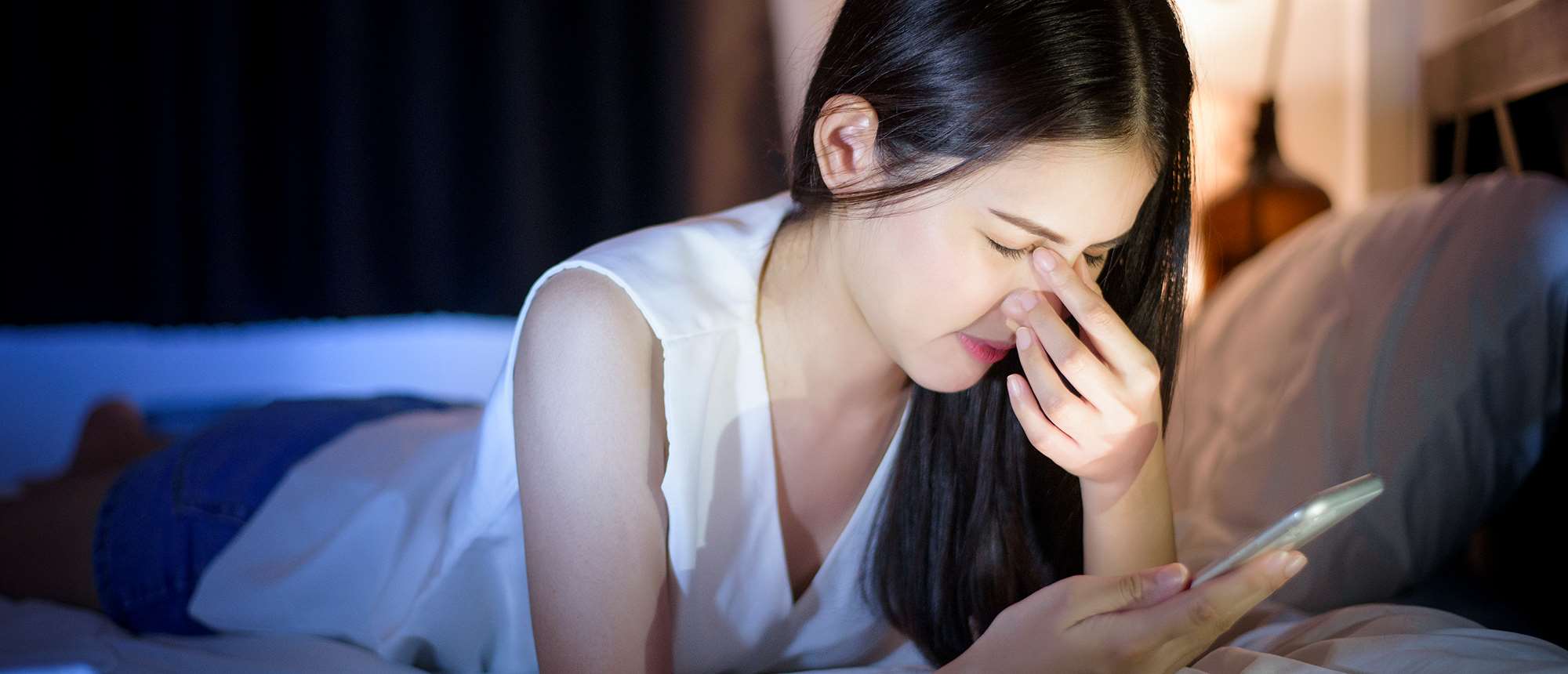Eyes Feeling Dry? It may be due to the pandemic

There’s been much discussion since the beginning of the pandemic about the many impacts of COVID-19 on our health. Much of that discussion has centered on the impact of the virus on the lungs, heart, and other organs of those who have become infected, while health officials and others also lament its impact on mental health and our ability to stay active.
But a less clearly seen impact of the pandemic has been its impact on eye health. According to John Conto, OD, FAAO, an associate professor at the Medical College of Wisconsin (MCW) and an optometrist at the Froedtert & MCW Eye Institute, there’s been an increase in cases of dry eye syndrome that coincides with the pandemic.
“Certainly, I would say I have several complaints every week and that things got worse since more people started wearing masks,” he says.
According to Dr. Conto, this is occurring for several reasons. One is the abundance of screen time, especially for youth.
“They’re spending more time on Zoom, virtual classrooms and things like that,” he says. “Our blink rate goes down when we’re concentrating.”
Similar to reading a book, Dr. Conto explains, when students focus on a computer screen, they blink less. When we blink, we squeeze oils out of our eyelids and draw tears that coat our eyes with condensation, he adds.
The impact of increased screen time on youth is especially concerning to Dr. Conto, who says he’s received more and more complaints from young patients about eye muscle fatigue or burning eye.
“We’re just not set up to sit 4-6 hours in front of a computer without losing focus,” he says.
Another major factor in the increase of COVID-19-related eye issues has been the impact of mask wearing, particularly those that are worn improperly. Cloth masks, which are more common now, are not as form fitting as surgical masks, which leads to air escaping.
“You’re breathing into them and it’s blowing up into your eyes,” Dr. Conto explains.
The occurrence has become so common that the ophthalmologist community has termed it Mask Associated Dry Eye, or MADE.
Although MADE and screen-related dry eye issues can happen to anyone, they are even more common among individuals who already have issues with their vision, Dr. Conto says.
“Not necessarily someone who has intact tear reduction, but somebody who is maybe borderline or has other lid issues. It seems to aggravate existing conditions in particular,” he says.
Thankfully, there are things we can do to help avoid these issues. In terms of MADE, Dr. Conto says a proper fitting mask with a bendable form, common in surgical masks, that fits tight over the nose should help you avoid problems. For those who prefer cloth masks, he recommends you tape along the upper edge.
For avoiding problems associated with increased screen time, Dr. Conto recommends that every 20 minutes you spend in front of a screen, you take a 20 second break and blink 20 times to moisturize your eyes. Optometrists also recommend that you look into a distance that’s 20 feet away to reset your eyes and that you set up a proper work station, avoid using electronics at close distances, such as lying in bed, and consider using a mist humidifier in your home.
Dr. Conto recommends light usage of preserve drops that contain the base substance hydroxymethylcellulose and to avoid eye drops that contain polyvinyl alcohol as a base, which can cause irritation over time. He also cautions against using the ultra-common “get the red out” type of drops.
“Something like Visine constricts blood vessels and probably constricts tear production as well. They have their place, but that’s not what they’re used for right now,” he says.
If you use eye drops more than recommended and your eyes are still dry or if your existing eye problems are getting worse, it is recommended that you see an optometrist. Thankfully, for those in the area, MCW has a team of highly trained and experienced optometrists that specialize in treating dry eyes and other ocular ailments in a hospital-based setting.
“We have a unique approach to it, and we’re handling the most difficult cases in the area,” Dr. Conto says.
Still, says Dr. Conto, the best thing to do is take care of your eyes so that you can help yourself avoid COVID-related issues or any other problems in the future.
“Just like you take care of other parts of your body, you need to take good care of the eyes too,” he says. “It may be something as simple as dryness, but if you don’t manage it early, then it becomes chronic, and then you have quality of life issues later on.”



